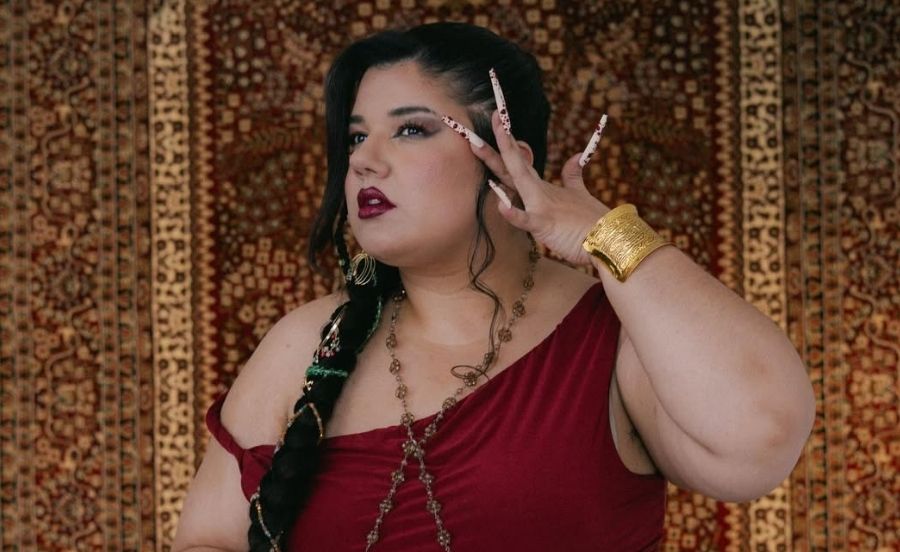Faravaz’s Album ‘Azadi’ is a Celebration of Freedom & Identity
The Iranian-born artist blends traditional Persian melodies with indie-pop music to recount her life in imprisonment and exile.

Berlin-based Iranian-born artist and activist Faravaz Farvardin has recently released her debut full-length studio album, ‘Azadi’, a bold celebration of liberation and identity. Produced in collaboration with Grammy-nominated British producer Charlie McClean, the 11-track record recounts the story of Faravaz’s life in exile in Germany and imprisonment by the Iranian government in 2016 for the act of singing as a woman.
“Azadi is not just an album –it’s an act of defiance. After 28 years of living under oppression and censorship as an Iranian woman, this music is my freedom. It’s a tribute to our shared cultural roots, but also a call to break taboos and embrace our own unique paths. No matter where we come from, our struggles connect us.” Faravaz shares in her announcement of the album.
Faravaz’s music is driven by a yearning to amplify the voices of women who dare to challenge patriarchal oppressive systems, utilizing provocation as her means to find agency, liberation, and empowerment as well as a home away from her homeland, Iran. Her debut solo record’s moniker, ‘Azadi’--meaning ‘Freedom’, is inspired by the global wave of feminist protests, “Jin, Jîyan, Azadî”, in solidarity with women in Iran and Kurdistan, following the brutal murder of Jina Mahsa Amini.
The album offers a poignant glimpse into Faravaz’s life and personal struggles. Throughout the record, she sings in three languages: English, German and Farsi (Persian), blending Persian folk instrumentals and traditional melodies with world music styles and alternative pop. Each track on the record is deeply personal yet universally resonant, carrying those memories of protest, fear and longing, and challenging societal norms through provocative lyricism.
Although tracks like ‘Mullah’ and ‘Enemy of God’, are kind of tongue-in-cheek with a humorous, seductive aspect to them, they underscore Faravaz’s anger at the patriarchal systematic oppression in Iran. She’s explicitly rebelling against the redundant notion that women should be calm and polite, using her body as a form of resistance.
Meanwhile, on ‘Dessert’, she pushes back against fatphobia and misogyny, relaying her journey of self-love and body positivity. She takes ownership of her body and right of existence and simple life pleasures as an overweight woman, through simple lyrics that talk about deserving to eat dessert.
In celebration of the album’s release, Faravaz will also premiere a documentary, titled ‘The Orange Garden’, capturing her imprisonment, exile, resilience, and the struggles of artists in exile, through cinematic storytelling.
Trending This Week
-
Nov 17, 2025



























